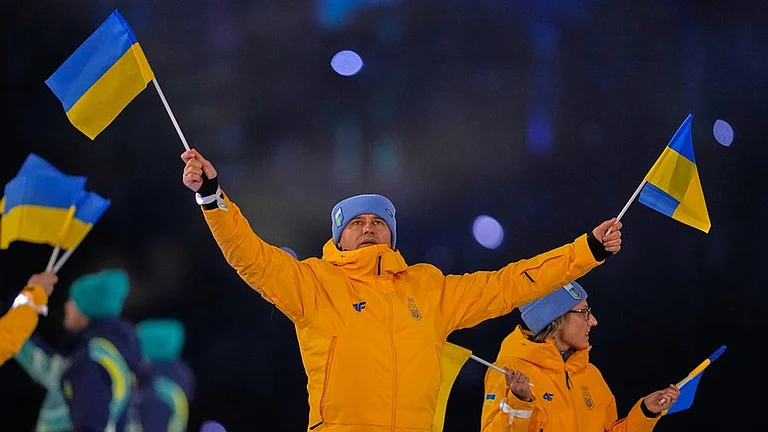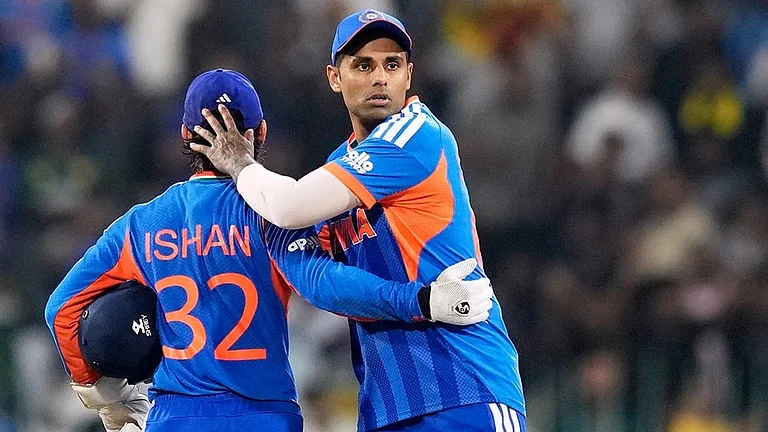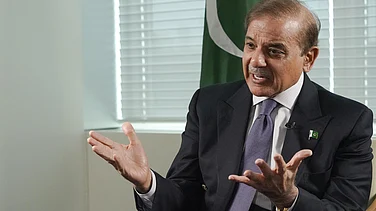After months of dithering, China has begun to relax its zero-Covid restrictions.
The decision to roll back many of the restrictions that had been in place for three years, including long spells of total lockdowns in major cities like Shanghai, came in the wake of unprecedented protests in cities and university campuses in large parts of China.
But there is no announcement yet of withdrawing the zero-Covid policy.
The protests at the end of November were unique in nature as this was the first public anger against a national policy.
Since the 1989 Tiananmen Square movement led by young Chinese citizens was brutally dealt with, no protests in China have sought to bring either political reforms or criticised a national policy.
The recent protests were different both in scale and scope. They were spontaneous expressions of anger against a government policy cutting across different groups of people in China.
Most significantly, they were directed against a policy that was closely associated with the country’s current supremo, Xi Jinping, widely considered the most powerful Chinese leader in decades.
The anger and frustration that was simmering for months came to the surface on November 24 when a fire in a high-rise building in Urumqi, in the Xinjiang province of China, killed 10 people and injured several others.
Overnight, the people’s ire spread over the tragic accident to different cities and universities and people took to the streets to protest the restrictions that had been put in place to enforce the zero-Covid policy.
As authorities began to lift many of the measures, Xi Jinping told a visiting delegation of the European Union that the protests by students were over the covid restrictions that hampered their free movement for nearly three years.
At the initial stage when the Covid virus made its appearance and Xi decided to stamp out the pandemic, most people supported him since the virus was unknown and there were no vaccines to deal with it.
China’s handling of the pandemic was also much appreciated by the Chinese people and many international agencies, especially when it was compared with the bungling of Donald Trump in America and Boris Johnson in the United Kingdom.
The Johns Hopkins Hospital Research Centre said there was one death in China per 100,000 people in comparison to 300 deaths per 100,000 people in the United States.
But since early this year when the virus changed to more infectious but less fatal Omicron and most countries began to relax their restrictions and finally lifted their lockdowns, China’s stringent measures looked out of place.
However, since the zero-Covid policy was associated with Xi Jinping, Beijing got caught in its own political rhetoric and was unable to remove the restrictions, afraid as it was to destroy its own record of keeping a low infection rate in comparison to countries in the West.
Experts say, the rate of vaccination in China, particularly among elderly citizens, who are 80 years of age or above, is only about 40 per cent. Most of them have not been given a booster dose which is essential to make the Chinese covid vaccines effective.
If it opens and starts going back to the pre-covid situation, there is every chance that a large number of people will be affected and the swelling numbers could totally overwhelm China’s health system.
The best option for China is, therefore, to import more effective vaccines from the West or get their licences to produce them locally and ensure most people are given the vaccine.
But having crowed about its superior handling of the Covid-19 pandemic situation in comparison to the western countries, it will be difficult for Xi Jinping to eat humble pie and import the vaccines from America or other European countries.
On the other hand, pursuing restrictions that are in place will lead not only to wider resentment and perhaps even more violent protests but also make the economic situation in the country worse.
Currently, China’s economy is facing its worst crisis in 40 years. The rising inflation and the rate of unemployment among the youth which has reached nearly 20 per cent, were key elements that spurred the countrywide protests.
The resentment of the Chinese people was reflected recently during the funeral memorials of former Chinese Communist Party general secretary Jiang Zemin. As the news of his death was announced last week, people started pouring out to mourn the death of Jiang who died at the age of 96 of leukaemia in Shanghai.
Jiang who took charge in the post-Tiananmen Square massacre period managed to not only calm the situation internally but also ended China’s international isolation by mending fences with the United States and normalising bilateral relations.
But more importantly, he presided over a decade of speedy economic growth and prosperity, which by comparison to the current situation stands out in sharp contrast under Xi Jinping’s leadership.
At Jiang’s funeral this week, Xi Jinping called for national unity and for people to support his leadership to overcome the challenges that China now faces.
Will the set of restrictions that he has begun to remove ultimately lead to the lifting of the zero-Covid policy, is a question that will be keenly awaited by people in China and abroad.
For the world’s second-largest economy falling into recession will not only affect China but also many more countries that are already struggling under the impact of the ongoing Ukraine war.


























